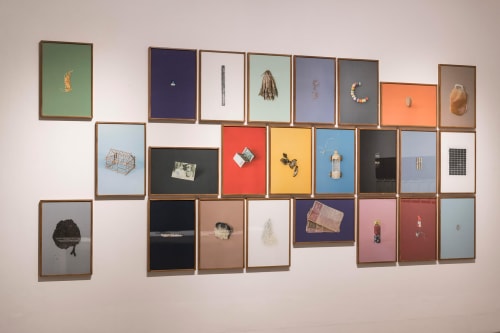Having to vacate my apartment during lockdown was not what I had foreseen. However, even as I sat on tenter hooks, I knew that it was a luxury for me to have so much time on my hand to make peace with moving out, to come to terms with surrendering the feeling of ownership we inevitably have to things, and to pack up the contents of what will encompass my present into two suitcases that can be checked onto a flight that will, at some point, hopefully leave for my partner’s home in northern Italy.
In February 2020, at the Dhaka Art Summit, I had encountered and had been moved by Munem Wasif’s installation comprising several bodies of work attesting to the trauma that Rohingyas had to encounter because of having to flee the threat of ethnic cleansing in Myanmar. Wasif had lovingly documented some of their belongings, all curiously invaluable only to their owner. I think this was what I loved about the series, Spring Song, that it was invested in the aesthetics that mark the privacy of attachment. “What can you hold onto when running away to save your life?” was the central thesis of his installation. “How can you be, belong, or settle when nobody accepts you as a citizen? How do you legally prove your very existence after decades of systemic violence? In Spring Song (2017-2019), Wasif allows objects found in refugee camps in Bangladesh to take centre stage and to echo something of what it means to be dislocated. They are also tracing of the subjectivities of the inhabitants of the camp, something we tend to very easily forget when we inevitably tend towards ‘pitying’ displaced people, dissolving all nuances of their forced exodus within the umbrella term of refugees. In Dark Water, a series of black-and-white photographs, accompanied by first-person accounts, Wasif challenges the viewer to reach within oneself and empathise with the indignity of a people who had to flee for their life, with little or no hope of being accommodated.


